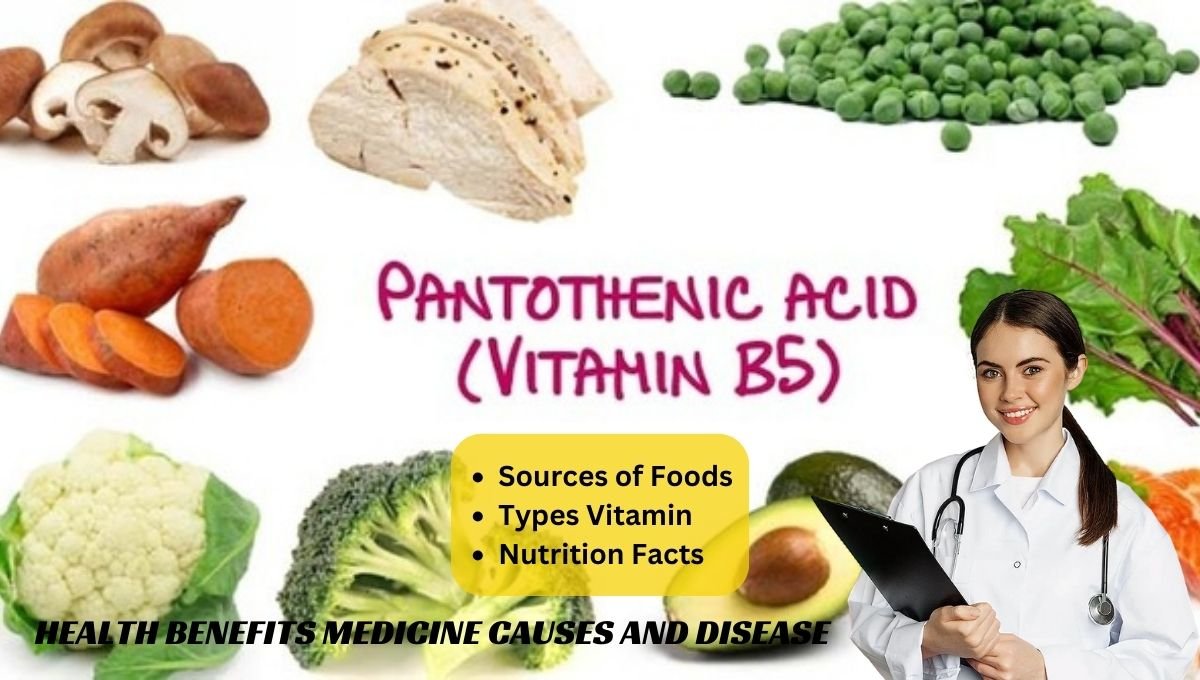Vitamin B5, also known as pantothenic acid, is a water-soluble vitamin that is essential for various bodily functions, particularly in energy metabolism and the synthesis of important molecules like coenzyme A. It plays a key role in converting food into energy and is necessary for the production of hormones and cholesterol.
Types of Vitamin B5:
- Pantothenic Acid: The active form of vitamin B5 that is used by the body.
Nutrition Facts and Health Benefits:
- Energy Production: Pantothenic acid is involved in the metabolism of carbohydrates, fats, and proteins, helping to convert them into energy.
- Synthesis of Coenzyme A: Essential for the synthesis of coenzyme A, which is important for the synthesis of fatty acids and cholesterol.
- Hormone Production: Required for the production of adrenal hormones like cortisol and certain sex hormones.
- Healthy Skin: Pantothenic acid contributes to the maintenance of healthy skin and hair.
- Wound Healing: Supports wound healing and tissue repair.
Sources of Vitamin B5:
- Meat: Beef, poultry (especially chicken and turkey), pork.
- Fish: Salmon, trout.
- Dairy Products: Milk, yogurt, cheese.
- Eggs
- Whole Grains: Brown rice, whole wheat bread, oatmeal.
- Legumes: Lentils, chickpeas.
- Vegetables: Mushrooms, avocados, broccoli.
Medicine Causes and Diseases:
- Deficiency Diseases: Pantothenic acid deficiency is rare but can lead to symptoms like fatigue, irritability, and numbness or tingling in extremities.
- Medications: Certain medications like antibiotics or anticonvulsants may interfere with pantothenic acid absorption.
Caution for Vitamin B5:
- No Known Toxicity: There is no known toxicity associated with high doses of pantothenic acid from food sources or supplements.
- Interactions: Pantothenic acid supplements may interact with certain medications, so consult a healthcare provider before taking supplements, especially if you are on medication.
- Balanced Diet: It’s important to consume a balanced diet rich in vitamin B5-containing foods rather than relying solely on supplements for optimal health.
Post Views: 29
